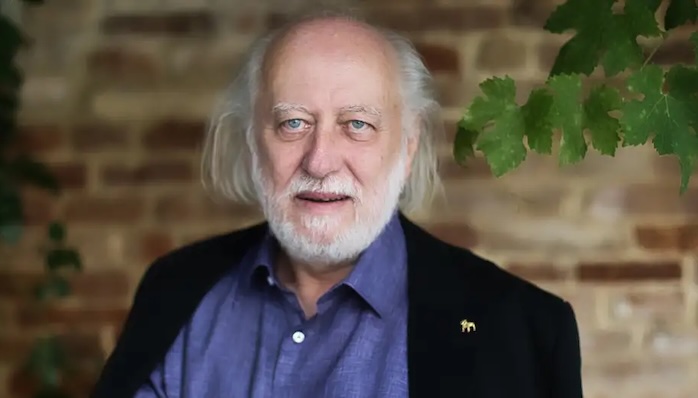
Laszlo Krasznahorkai of Hungary will receive this year's Nobel Prize in literature, the Swedish Academy announced on Thursday.
Krasznahorkai won "for his compelling and visionary oeuvre" in the "midst of apocalyptic terror" that "reaffirms the power of art," said Mats Malm, the Academy's permanent secretary.
The 71-year-old novelist and screenwriter is famous for his postmodern and sometimes dystopian portrayals of small towns in Hungary. He has adapted several of his novels, including Satantango and The Melancholy of Resistance, into award-winning films.
This award is considered the most prestigious honor a writer can receive in their career. Krasznahorkai has regularly been touted as a favorite to win for the past decade.
Fame and travels
Born in Gyula in 1954, he studied literature at the University of Budapest. He first left communist Hungary on a DAAD fellowship to West Berlin in 1987, and later returned to Germany for one semester as a visiting professor at the Free University of Berlin.
After Satantango, his debut novel, was published in 1985, he immediately became one of Hungary's most celebrated writers.
After the fall of communism, he traveled extensively in China, which led him to write his acclaimed travel memoir Destruction and Sorrow Beneath the Heavens.
Despite his renown and numerous national and international prizes, in recent years Krasznahorkai has kept a low profile at his home in the Hungarian countryside.
He is the second author writing in Hungarian to win the prize, after Imre Kertész in 2002.
Formal ceremony in December
Unlike many other literature prizes, the Nobel Prize is given for an author's entire body of work. Last year's winner was Han Kang of South Korea, a novelist known for her haunting portrayals of trauma and life as a woman in a society with strict gender roles. She was the first Asian woman and the first Korean to win the award.
There will be a formal ceremony held to hand over the prize in December, which comes with a check for about $1.2 million. The recipient is also expected to deliver a lecture at the event. Some past winners have been reluctant to do so — such as US songwriter Bob Dylan in 2016 — but the prize money is contigent upon giving the talk.